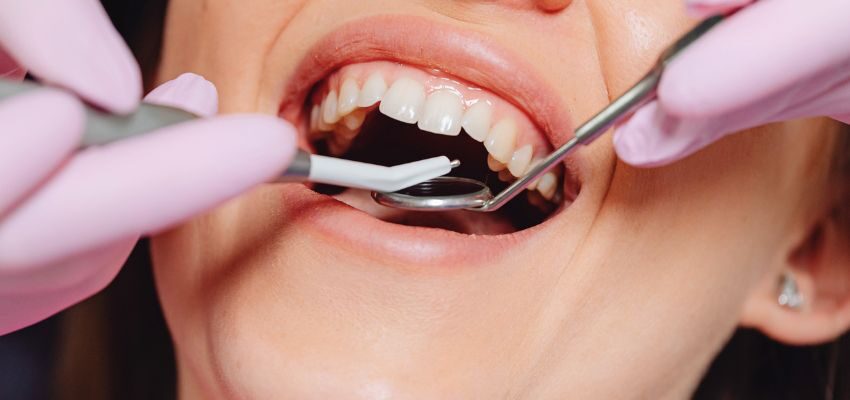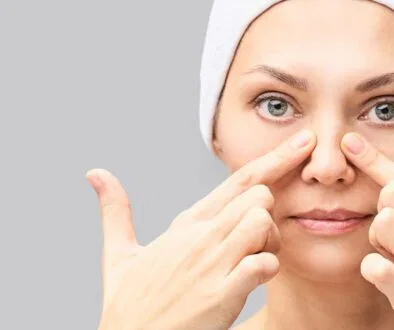Sinus Perforation: A Guide To Effective Recovery

Published June 24, 2025
What happens when a simple dental procedure causes unexpected pain? Sinus perforation, though uncommon, can be a serious issue. It may result from dental work, injury, or health conditions. If untreated, it can cause ongoing discomfort. Learning about this condition is the first step to finding the proper care and improving your health.
In this article, we’ll explore everything about sinus perforation. We’ll cover its causes, symptoms, diagnosis, and treatment options. You’ll also find preventive tips and practical advice for recovery. Common questions will be addressed to guide you through this condition.
Understanding Sinus Perforation
A sinus perforation refers to a hole or tear in the membrane that separates the sinuses from surrounding structures. This can occur in areas like the maxillary sinus (near the cheekbones), the nasal cavity, or other parts of the sinus system. Common causes include trauma, surgical procedures, infections, or chronic inflammation.
Small perforations can heal on their own without symptoms. Larger or untreated ones can cause serious problems. These include recurring sinus infections and other health issues.
The Maxillary Sinus And Its Vulnerability
The maxillary sinus is one of the four pairs of air-filled cavities in the skull. It’s located beneath the cheeks and above the upper teeth. This sinus plays an essential role in the respiratory system. Its close location to dental roots makes it vulnerable. Dental procedures such as implants or extractions can sometimes lead to complications like sinus perforation after tooth extraction, causing potential damage to this delicate structure.

Causes Of Sinus Perforation
Perforation can happen for several reasons. Medical issues, injuries, or chronic conditions often cause them. Here are the most common causes:
- Dental procedures. Upper molar procedures, like extractions, root canals, or implants, are near the sinuses. This proximity can sometimes puncture the sinus membrane.
- Facial trauma. Physical injuries from accidents or sports impacts can damage the sinus structure. This damage may cause perforation.
- Surgical complications. Sinus or nasal cavity surgeries, like correcting a deviated septum, can sometimes cause perforations.
- Chronic nasal drug use. Prolonged use of nasal drugs, such as cocaine, can erode nasal tissue over time, making the sinus lining vulnerable to perforation.
- Chronic sinusitis and infections. Chronic sinusitis causes persistent inflammation. This can weaken the sinus lining. Over time, it may increase the risk of tears or perforations.
- Other contributing factors. Less common causes include malignant tumors or long-term use of certain medications. Both can damage this sinus lining.
What Are The Signs And Symptoms?
The symptoms of a sinus perforation can vary in severity, depending on its size and location. The symptoms may range from mild discomfort to serious complications. Below are the key symptoms to watch out for:
Early Symptoms To Look Out For
- Persistent facial pain or pressure
- Bleeding from the nasal cavity
- Air escaping into the mouth while breathing
- Nasal congestion or unusual discharge
- Liquid leaking from the nose when drinking
Potential Long-Term Complications If Left Untreated
Without treatment, a perforation can lead to serious health problems. These may include chronic issues:
- Recurring sinus infections
- Loss of smell or changes in voice quality
- Facial swelling
- Rare but severe complications such as meningitis, orbital cellulitis, or brain abscess
Prompt diagnosis is crucial. Quick treatment helps prevent complications and ensures proper healing.

Diagnosing A Sinus Perforation
Accurately diagnosing a perforation requires professional medical evaluation and specialized diagnostic tools.
When To Seek Medical Attention
If you have facial pain, sinus issues, or liquid leaking from your nose, consult a doctor.
Diagnostic Tools And Imaging Tests
- Visual examination. A dentist or ENT specialist may conduct a detailed visual exam. They use specialized tools to spot abnormalities.
- CT scans and X-rays. CT scans and X-rays offer a detailed view of your sinus structure. These imaging tools help confirm the diagnosis. They also determine the severity of the perforation.
Best Treatment Options For Sinus Perforation
Sinus perforation treatment depends on its size and severity. Options vary from simple home remedies to surgical procedures. Here are the available choices:
Non-Surgical Treatments
Minor perforations can often be managed effectively with non-invasive methods:
- Saline irrigation. Clear your nasal passages by flushing them with a saline solution. It keeps them clean and lowers the risk of infection.
- Antibiotics and decongestants. Antibiotics help prevent or treat infections. Nasal decongestants reduce swelling and ease sinus pressure. Both provide much-needed relief.
- Lifestyle modifications. To promote healing, avoid activities that increase sinus pressure. These include forceful nose-blowing, sneezing, or drinking through straws.
Surgical Treatments
Severe or persistent cases may require surgery. This helps ensure proper healing. Common procedures include:
- Primary closure. This technique closes the perforation with sutures. It helps seal the opening and supports healing.
- Buccal or palatal flap procedures. Tissue from the cheek (buccal) or palate is carefully repositioned. This helps cover the perforation and supports healing.
- Bone grafting. For large or long-term perforations, bone grafting is used. It restores and rebuilds the damaged area. This ensures long-term structure integrity.
After surgery, patients are usually prescribed antibiotics. They’re also provided with detailed instructions for their recovery. These include avoiding activities like vigorous exercise or nose-blowing, which could disrupt healing.
Natural Remedies And Complementary Support
Looking for extra relief? Natural and complementary remedies can help. They work alongside medical treatments.
- Probiotics. Probiotic strains like BLIS K12™ (Streptococcus salivarius K12) support a healthy sinus and oral microbiome. They may help lessen inflammation and lower the risk of infections. BLIS K12™ (Streptococcus salivarius K12) is found in clinically formulated supplements, such as those from Bionaze. It provides targeted benefits for microbiome health.
- Anti-inflammatory foods and supplements. Try natural and anti-inflammatories like turmeric, ginger, or omega-3 supplements. They can reduce swelling and support recovery.
- Steam therapy. Inhaling steam with essential oils can ease discomfort. Use eucalyptus or peppermint for relief. However, it’s necessary to consult your doctor before exploring any new remedies.
Recovery And Post-Treatment Care Tips
Proper aftercare is vital for ensuring a smooth and successful recovery.
What To Avoid During Healing
To promote healing and prevent complications, steer clear of the following:
- Smoking
- Drinking through straws
- Blowing your nose or forceful sneezing
Easing Pain And Discomfort
To minimize the discomfort, consider using over-the-counter pain relievers such as ibuprofen, as advised. If advised, cold compresses can also help reduce swelling effectively.
Healing Timeline
Recovery times depend on the severity of the case. Smaller perforations heal in four to six weeks. Larger cases needing surgery can take several months to recover.
How To Prevent Sinus Perforation
Preventing perforation starts with meticulous planning and adherence to best practices.
- Comprehensive Pre-Procedure Screening. Before undergoing dental or nasal surgery, ensure thorough imaging and evaluations are conducted. This helps identify high-risk areas and allows for better procedural planning.
- Best Practices for Dentists and Oral Surgeons. Choose healthcare providers who use modern techniques. Advanced tools help reduce risks and complications during procedures.
- Patient Aftercare and Monitoring. Follow all aftercare instructions from your surgeon. Attend your follow-up appointments. Early detection and quick action help address any issues.
Frequently Asked Questions
Can a sinus perforation heal on its own?
In many cases, small sinus perforations can heal naturally within a few weeks without intervention.
Is sinus perforation dangerous?
Perforations are usually not life-threatening. However, if untreated, they can cause infections and other complications. These may need medical attention.
How can I tell if I have a sinus perforation?
Wondering how to check for sinus perforation? Look for signs like air escaping through the nose when blowing, nasal discharge, or a whistling sound. If you experience any of these symptoms, consult a healthcare professional.
Is surgery necessary for a perforation?
Surgery isn’t always needed. Small perforations can heal with care. Larger or more severe cases often require surgery.
How can I prevent a sinus perforation during dental treatment?
To reduce risk, choose a skilled dentist. Look for someone who uses pre-procedure imaging and protective measures to keep you safe.
How common is sinus perforation after tooth extraction?
Sinus perforation after tooth extraction is relatively rare. A study found that oroantral communications occurred in 3.8% of 2,038 maxillary extractions, with the first molars being the most commonly affected. Incidence rates range from 0.5% to 7%, especially during upper molar and premolar extractions due to their proximity to the maxillary sinus.
Why Choose Bionaze?
Bionaze is a probiotic supplement. It’s designed to support ear, nose, throat, and sinus health. Bionaze features clinically researched strains such as BLIS K12™ (Streptococcus salivarius K12) and BL-04™ (Bifidobacterium Lactis BL-04). Both are expertly formulated to benefit the upper respiratory system. They help reduce harmful bacteria, strengthen the sinus microbiome, and protect against recurring infections.
Are you recovering from a procedure? Managing chronic sinus concerns? Bionaze offers a natural, science-backed solution. It supports your healing and boosts ENT health.

Taking Control Of Perforation Recovery: Your Path To Relief
A sinus perforation can be a tricky complication. With the proper care, it doesn’t have to affect your well-being. Learn the causes, recognize the symptoms, and explore treatments. Both medical and natural options are available. Staying informed is key. Take control of your recovery and feel like yourself again. Recovery is a journey, but with the right approach, it’s one you can navigate confidently.
Don’t let sinus perforation hold you back—catching symptoms early and getting proper care can make all the difference. Ready to breathe easier? Try Bionaze’s powerful probiotic formula for sinus and respiratory health. Visit Bionaze today for lasting relief!
Benefit From The Latest Advancements In Probiotic Science With Bionaze
Bionaze is a proprietary blend of probiotics proven to promote ear, nose, and throat health, improve digestion, and support your immune system. The active ingredients BLIS K12, and BL-04 are considered among the best probiotics according to science.
Get 25% Off Your First Order when you use BIO25 at checkout!

This Content Has Been Reviewed For Factual Accuracy
This content has undergone thorough fact-checking by our team of internal experts. Learn more about the meticulous editorial standard for our website here.
ADVERTISEMENT

About The Author
Hi, I’m Corinne Grace, a proud nursing graduate from Riverside College with a flair for writing. I specialize in health and wellness topics, using my educational background to weave informative and attention-grabbing articles that appeal to a wide variety of readers. Committed to excellence in writing, I’m always refining my skills to stay in sync with the fast-evolving world of digital media. Whether you’re seeking to understand complex health concepts or looking for relatable advice, I’m here to deliver content that’s accurate and enjoyable to read.




